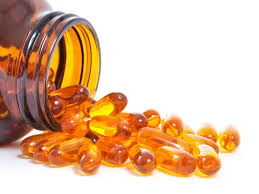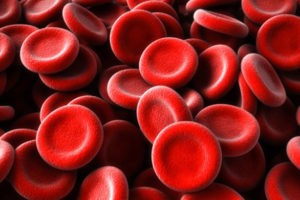
Diagnosed with Cancer? Your two greatest challenges are understanding cancer and understanding possible side effects from chemo and radiation. Knowledge is Power!
Learn about conventional, complementary, and integrative therapies.
Dealing with treatment side effects? Learn about evidence-based therapies to alleviate your symptoms.
Click the orange button to the right to learn more.
Vitamin D Overdose?

Vitamin D overdose!? I didn’t know that this was possible. I live in the top of the United States and rarely travel to warm, sunny places.
I’ve written many posts on PeopleBeatingCancer.org extolling the benefits of vitamin D while cautioning readers about the risk of vitamin D deficiency.
I’ll try to clarify what I mean when I talk about too much vitamin D in our system.
- Levels of 50 nmol/L (20 ng/mL) or above are adequate for most people for bone and overall health.
- Levels below 30 nmol/L (12 ng/mL) are too low and might weaken your bones and affect your health.
- Levels above 125 nmol/L (50 ng/mL) are too high and might cause health problems.
It’s important to understand that you can’t figure out the above blood levels by supplementing (taking vitamin D supplements). You have to have your blood levels checked. I go to my local CVS but you can go to your doctor probably.
Supplementing with vitamin D can have both benefits and potential drawbacks. Here are some of the pros and cons associated with vitamin D supplementation:
Pros:
- Bone Health: Vitamin D plays a crucial role in calcium absorption, which is essential for maintaining healthy bones and teeth. A deficiency can lead to conditions like osteoporosis and rickets.
- Immune Function: Some research suggests that vitamin D may play a role in supporting immune function. It may help the body fight off infections and regulate the immune response.
- Mood and Mental Health: There is some evidence to suggest that vitamin D may play a role in regulating mood and preventing conditions like depression. However, more research is needed in this area.
- Reduced Risk of Certain Diseases: Some studies have suggested that maintaining adequate vitamin D levels may be associated with a reduced risk of certain chronic diseases, such as heart disease, multiple sclerosis, and certain types of cancer. However, more research is needed to establish causation.
- Muscle Function: Adequate levels of vitamin D are important for muscle strength and function.
Cons:
- Risk of Overdose: While vitamin D is essential for health, excessive intake can lead to vitamin D toxicity, which can cause symptoms like nausea, vomiting, weakness, and even serious complications like kidney damage.
- Interactions with Medications: Vitamin D supplements can interact with certain medications, such as corticosteroids, cholesterol-lowering drugs, and certain weight loss drugs. It’s important to consult a healthcare provider before starting any new supplement regimen.
- Limited Benefits for Healthy Individuals: For individuals with sufficient sun exposure and a balanced diet, supplementation may not provide significant additional benefits and may even be unnecessary.
- Possible Side Effects: Some individuals may experience side effects like gastrointestinal discomfort or allergic reactions to vitamin D supplements.
- Expense: High-quality vitamin D supplements can be costly, especially if taken in higher doses.
- Possible Ineffective Forms: Not all forms of vitamin D supplements are created equal. Some forms may be less effective or absorbed less efficiently by the body.
It’s important to note that before starting any new supplement regimen, it’s advisable to consult a healthcare provider, especially if you have underlying health conditions or are taking medications. They can provide personalized recommendations based on your specific health needs and circumstances. They can also monitor your vitamin D levels through blood tests to ensure you are not taking too much or too little.
Few nutritional supplements are as important to our health as vitamin D is-
- Vitamin D3, Chronic Disease, Myeloma
- Kidney Cancer Complementary Therapy-Vitamin D
- Skin Cancer, Vitamin D3 and Sunlight
- Vitamin D, Pulmonary Inflammation Lung Cancer
- Heart Failure, Cardiac Function, Vit. D
- Low Vitamin D Levels in Stroke Patients Up Risk of DVT
- Vitamin D3, Colorectal Cancer Survival
- Myeloma Bone Health – Vitamin D3 as Therapy
- Myeloma – Nutritional Supplementation
- Myeloma – Non-toxic Bone Health
- Myeloma, Inflammation, Arthritis, Psoriasis
Here is another interesting aspect of vitamin D supplementation. It is cheap. And easy. But remember that you and UNDER do it and you can OVER do it. So get your blood checked regularly.
If you have any questions or comments about vitamin D let me know at David.PeopleBeatingCancer@gmail.com.
David Emerson
- Cancer Survivor
- Cancer Coach
- Director PeopleBeatingCancer
Symptoms of Too Much Vitamin D and Supplement Side Effects
“Vitamin D toxicity, sometimes called a vitamin D overdose, is a rare but potentially dangerous condition. It occurs when someone has too much vitamin D in their body. Vitamin D toxicity is also called hypervitaminosis D.
A vitamin D overdose is typically a side effect of taking large doses of vitamin D supplements.1 It would not occur because of direct sun exposure or diet…
“Vitamin D2 vs. D3
The common types of vitamin D received from your diet are D2 (ergocalciferol) and D3 (cholecalciferol). They play the same role in the body but come from different sources. Vitamin D2 comes from plant sources, while vitamin D3 comes from animal sources. Vitamin D3 has been found to bind more effectively, making it a stronger source, which allows for lower doses with the same health benefits.4
Bouillon R,Manousaki D, Rosen C, Trajanoska K, Rivadeneira F, Richards JB. The health effects of vitamin D supplementation: evidence from human studies. Nat Rev Endocrinol. 2022;18(2):96-110. doi:10.1038/s41574-021-00593-z”
Many of the causes of vitamin D toxicity are a consequence of inappropriate prescribing, not taking vitamin D as prescribed, and the use of high-dose and unlicensed preparations.2 Many cases are preventable with appropriate use, proper formulation, and avoidance of unlicensed products.
Excessive effects of vitamin D can lead to higher calcium levels in the blood—a condition called hypercalcemia. It is often diagnosed at an early stage during routine blood work.5
Most people with hypercalcemia will not have symptoms. But, symptoms can occur in people who have taken high doses of vitamin D for a long time or in someone who has taken an extremely high dose over a short time…
Higher doses are typically prescribed to people whose bodies do not adequately process vitamin D due to some health conditions.6 Such conditions include asthma, psoriasis, rheumatoid arthritis, rickets, and tuberculosis. The higher dose is often prescribed to correct or prevent deficiency…
Summary
Vitamin D is vital to helping you to stay healthy. But even without underlying health conditions, you may need supplements to achieve optimal levels.
While it is rare, it is possible to experience vitamin D toxicity, which shows up as hypercalcemia. Common signs of hypercalcemia include digestive problems, fatigue, appetite loss, frequent urination, high blood pressure, and heart abnormalities. Complications of hypercalcemia are an altered mental state and kidney problems.
Vitamin D toxicity is more common in people who have medical conditions where it is necessary to prescribe higher supplement doses. To reduce your risk, avoid high doses and do not start taking supplements without approval from a healthcare provider.
If you are on a higher dose prescribed by a healthcare provider, you should report side effects and get your blood work tested regularly. “


